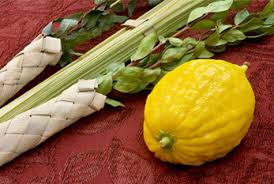 “What are you making for Sukkot?” my daughter asks me. “We always have pumpkin soup in the sukkah,” she adds. “And stuffed zucchini?” You usually make that too.”
“What are you making for Sukkot?” my daughter asks me. “We always have pumpkin soup in the sukkah,” she adds. “And stuffed zucchini?” You usually make that too.”
“Are you going to make stuffed cabbage this year,” my husband asks. “It’s my favourite.”
Everyone has their favourites. My daughter and husband especially are very particular about which foods express the holiday for them. I, of course, have just spent about 2 hours pouring through cookbooks to plan my menus for both days of Yom Tov and Shabbat, accommodating the tastes of our guests and factoring in the limited number of hours I have to get everything ready.
Enthusiasm for cooking and preparing and planning and even eating is starting to wane as we reach the midpoint of this month of holidays.
And stuffed vegetables? “Putchkie,” my mother would say. They require patience and time, when I am trying to be quick and efficient.
In the book of Deuteronomy, we are commanded to celebrate the harvest holiday of Sukkot for seven days. And we, and everyone among us, are commanded to rejoice.
You shall rejoice on your festival – you, your son, your daughter, your slave, your maidservant, the Levite, the convert, the orphan, and the widow who are in your cities. A seven-day period shall you celebrate to the Lord, your God, in the place that the Lord, your God, will choose for the Lord will have blessed you in all your crop and in all your handiwork and you will only be joyous.
(Notice it doesn’t say “your wife” – but I digress…)
The first and last part of this section of text is a refrain we sing on Sukkot: ושמחת בחגך והיית אך שמח – You shall rejoice on your festival, and you will only be joyous. Rashi explains that while the first part is an obligation – we must rejoice – the second part is actually a promise. In other words, if we celebrate and rejoice, the result is that we will be happy and joyful and enjoy the holiday.
And the stuffed vegetables? Unlike Rosh Hashanah, there are no symbolic foods that we are meant to eat on Sukkot, but many have the custom of eating foods that are stuffed or wrapped. They symbolize that the bounty and richness of the harvest are wrapped in (or stuffed with) God’s blessings, that true blessings often come from things that are hidden, and that we should be grateful for the multiple blessings we have been given in life.
We are reminded from Rashi and the Torah to focus on all we have and all we are grateful for. IF we celebrate the time we have together, the meals we can share, the opportunities to fulfill mitzvoth like shaking the lulav and sitting in the sukkah, if we approach the holiday with more joy and less drudgery, then we will be happier.
And so, I delicately separated the cabbage leaves and stuffed them. There will be stuffed zucchini and pumpkin soup. The first step to rejoicing is a happy family.
Here are some links to Sukkot recipes.
https://www.myjewishlearning.com/the-nosher/8-comforting-stuffed-cabbage-recipes-for-sukkot/
https://www.joyofkosher.com/2014/10/30-stuffed-foods-for-sukkot/
http://www.busyinbrooklyn.com/tag/meat-and-rice-stuffed-zucchini/
https://toriavey.com/toris-kitchen/stuffed-zucchini-meat/
https://www.haaretz.com/jewish/food/1.747237
Chag Sameach and Shabbat Shalom.



